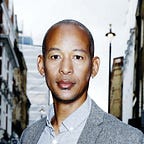On the “Ghost in the Machine”
I was listening to Thought for the Day the other day and the guest speaker said something very interesting. Thought for the Day is Radio Four’s religion-infused, regular section whose main aim is to reflect on contemporary issues from a faith-based perspective. The occasion was the celebration of Buddha’s Wakening or Enlightenment and the guest was Vishvapani , a member of the Buddhist Order.
On explaining how the Buddha’s new understanding of life challenged all the notions that he had had before, Vishvpavani said that the Buddha had showed people “how to tap the mind’s hidden capacities“. This phrase reminded me of an article I had read in the London Review of Books a few days before. The piece was about Noam Chomsky as a linguist and radical political figure. In the former role Noam revolutionised the field of linguistics. The academic position at the time was a distrust of “the ghost in the machine”, i.e., the human mind. Moreover, both philosophy and psychology followed this trend, preferring conventional wisdom to the prospect of having to deal with subjective experience. Chomsky, on the other hand, claimed that there were things we knew innately, even if they did not manifest themselves explicitly.
Having written a column on how to place adjectives correctly in a sentence in the English language more than a week ago and how this “problem” was hardly a problem for native speakers as they could “feel” what the right order was, I see myself in agreement with Chomsky. Knowledge, both the acquisition and possession of it, can be…
